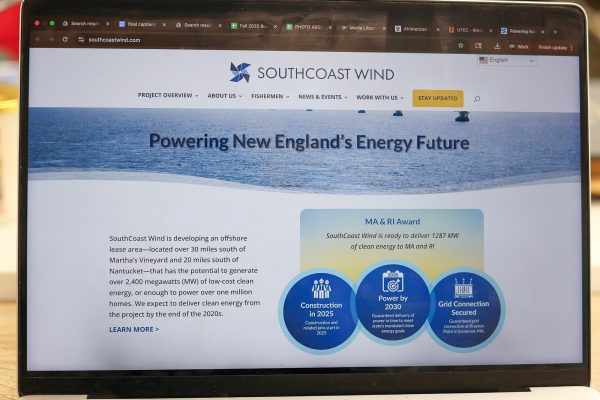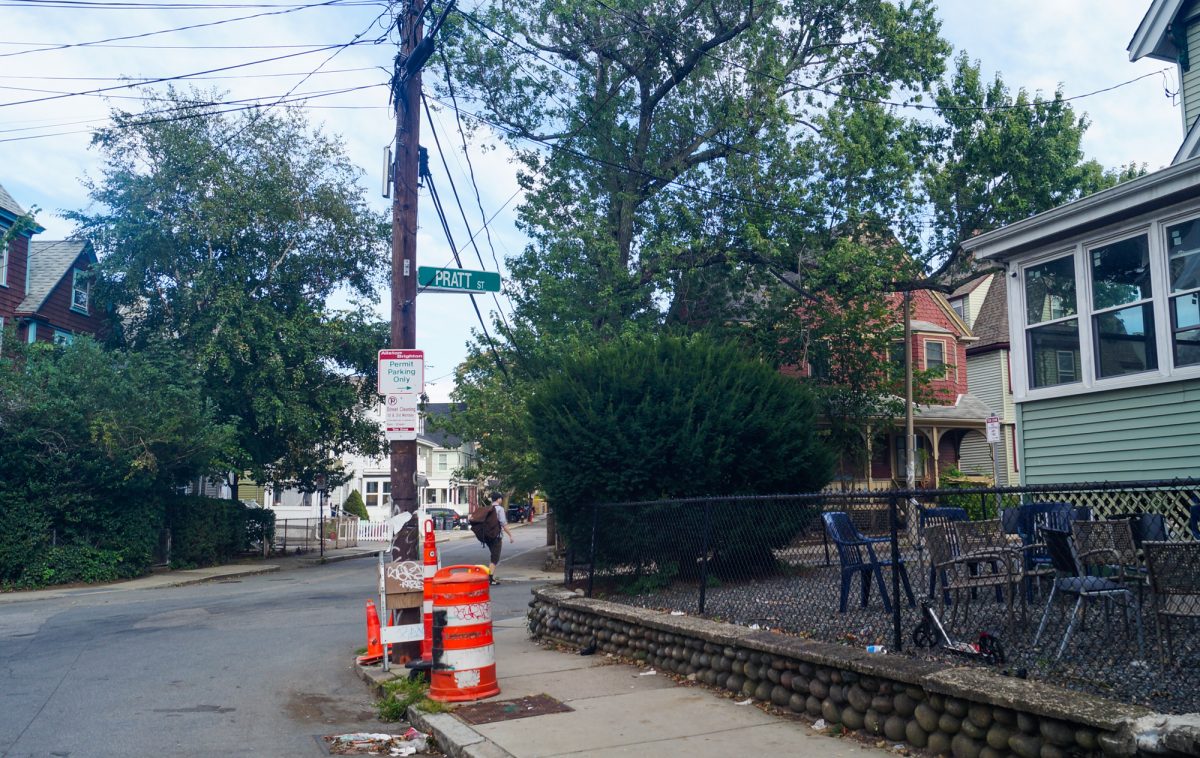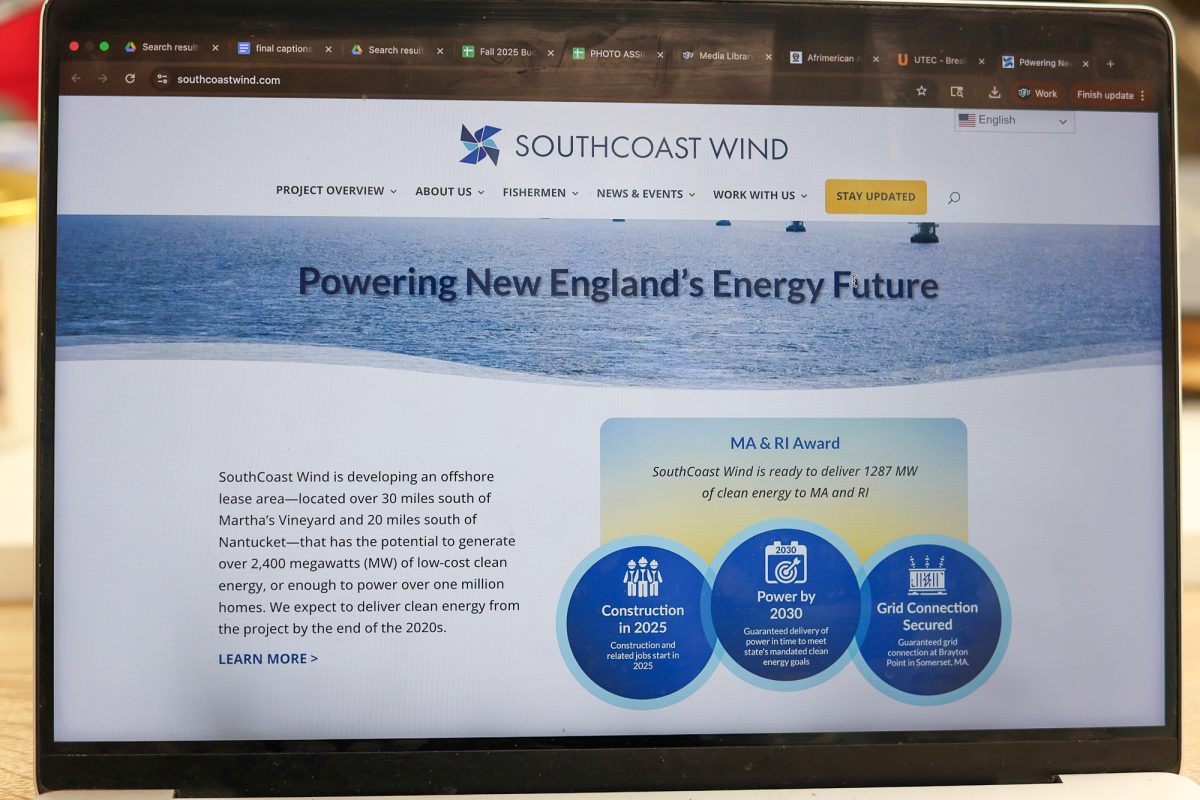The Trump administration is reconsidering a permit for an offshore wind farm south of Nantucket, emphasizing a looming threat to Massachusetts’ clean energy movement.

SouthCoast Wind, a large-scale clean energy project, is in the process of developing a 141-turbine offshore wind farm that will generate enough power to service over one million homes in southern New England.
“Right off the coast of New England is actually one of the best places to capture wind energy in the world,” said Hessann Farooqi, executive director of the Boston Climate Action Network.
The U.S. Department of Justice disclosed plans by the Department of the Interior to reconsider the permit — approved under former President Joe Biden — in a federal court filing on Aug. 29.
The same day, the Transportation Department canceled $679 million in federal funding for a dozen more offshore wind farms.
Since being sworn into office in January, President Donald Trump has signed a spate of executive orders aimed at dismantling clean energy projects nationwide.
“Massachusetts has been a real leader, first in putting us on a path to net zero carbon emissions by 2050,” said State Sen. Julian Cyr, representing the Cape and Islands district. “Unfortunately, those efforts are going to be thwarted by a federal administration who’s more interested in padding the profits of fossil fuel multinational corporations than listening to science.”
Cyr said halting the SouthCoast Wind project may force Massachusetts to turn to liquified natural gas instead to fill the gap in demand, potentially spiking energy costs.
“The lowest cost forms of energy to produce per megawatt hour right now are utility-scale solar and onshore wind,” Farooqi said. “Those are the things that we should really invest in.”
As of this September, solar comprises about 25% of the state’s electricity production and provides more than 11,600 residents with jobs, according to the Solar Energy Industries Association.
The One Big Beautiful Bill Act, signed into law by Trump in July, slashed clean energy tax incentives passed in the 2022 Inflation Reduction Act, rattling clean energy suppliers and solar installers across the country.
“With federal clean energy incentives ending, we’re entering a new chapter for residential adoption of solar and backup power, as well as heat pumps and electric vehicles,” Emily Walker, director of insights at EnergySage, an online marketplace that pairs consumers with vetted installers and providers, wrote in a statement to The Daily Free Press.
By 2030, 760,000 jobs could be lost as a result of the OBBBA’s policies repealing tax credits and terminating clean energy projects, according to climate-focused think tank Energy Innovation.
Cyr raised concerns about the impact of tampering with clean energy on the state’s economy and workforce.
“What was expected was that clean energy would become a significant source of employment … Massachusetts would be a real center for that,” Cyr said. “That’s being called into question by actions by the Trump administration.”
The Environmental League of Massachusetts, a climate advocacy group, expressed frustration over the potential cancellation of offshore wind permits.
Amy Boyd Rabin, vice president of policy and regulatory affairs at ELM, wrote in a statement to The Daily Free Press they are “extremely concerned about the federal administration’s illegal attempts” to prevent permitted offshore wind projects and “cancel funding awards for port infrastructure.”
“We continue to advocate for responsibly developed offshore wind that will ensure affordable, clean energy for the Commonwealth while driving economic and environmental benefits for the region,” Rabin wrote.
Farooqi pointed to the work Boston officials have done so far to promote the clean energy movement and said public support is essential.
“We also have to make sure that we are organizing all of our residents across this country to make clear to our decision makers that these are important investments that make all of our lives better,” Farooqi said. “This isn’t just about fighting climate change. This is about improving the affordability of our homes.”




















































































































